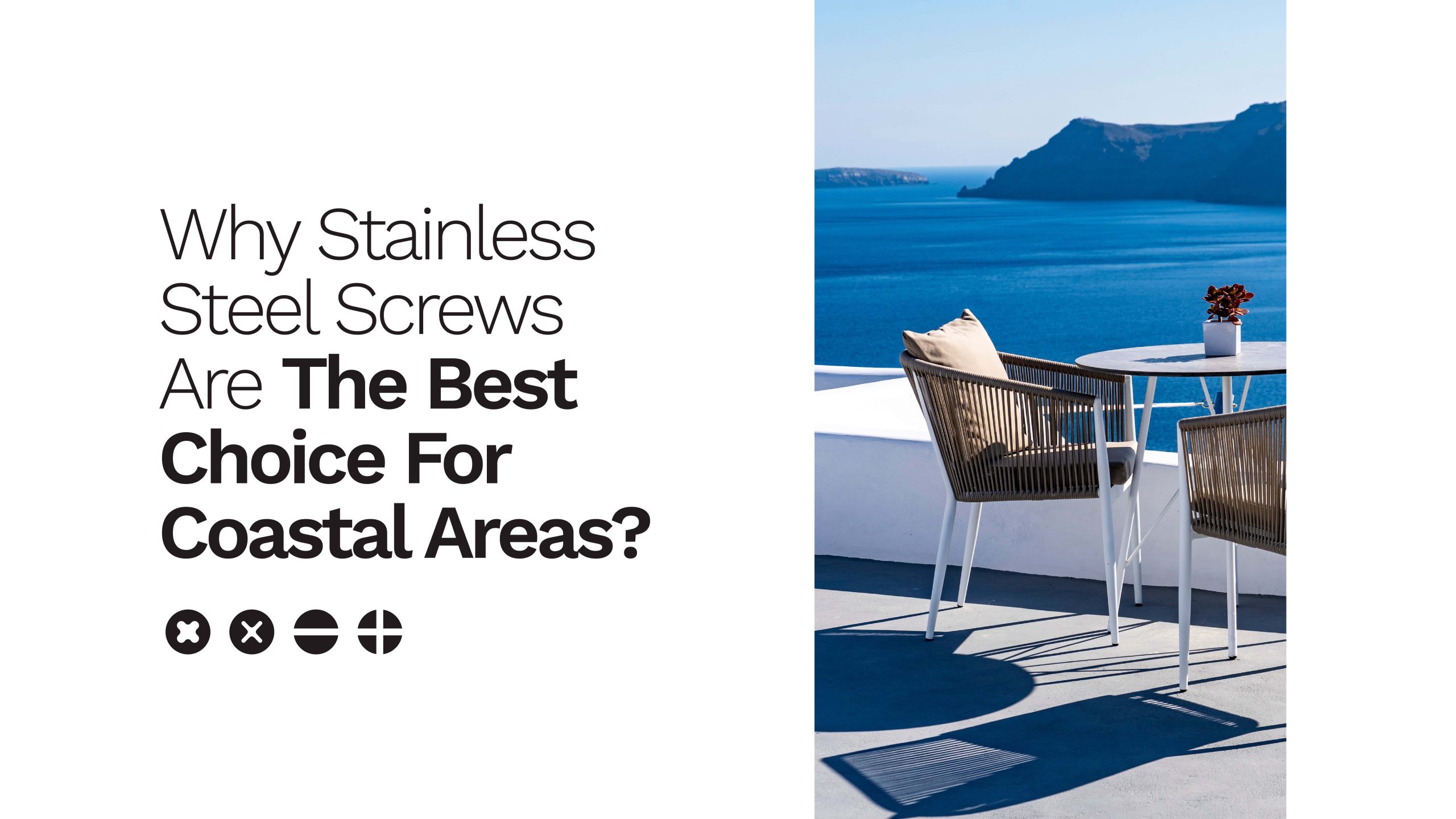


In coastal regions, the salty air, high humidity, and sea spray can gradually wear down standard metal fasteners. That’s why builders and homeowners working near the shoreline often choose stainless steel screws for coastal areas. These small components play a big role in preserving the strength and appearance of structures exposed to the elements.
If you’ve ever noticed rust marks on outdoor railings or found corroded screws on a beachside gate, you’ve seen firsthand how quickly the coastal environment can impact hardware. In this guide, we’ll look at why stainless steel screws for coastal areas are a practical and reliable choice for long-lasting outdoor projects.
The key benefit is simple: corrosion resistance. Unlike standard steel or zinc-coated screws, stainless steel resists rust and maintains its integrity over time.
Real-World Application:
Coastal projects come with their own set of environmental challenges—especially when it comes to fastener durability. Here’s a closer look at how stainless steel screws for coastal areas provide a longer-lasting, more stable alternative:
Stainless steel screws are a good fit for any structure exposed to salty air, moisture, or humidity:
Tip: Even indoor spaces near the shoreline—such as bathrooms, kitchens, or pool houses—can benefit from using stainless steel screws due to higher humidity levels.
Though stainless steel may be more expensive upfront than other options, its long-term value is significant:
| Feature | Coated Screws | Stainless Steel Screws |
|---|---|---|
| Rust Protection | Temporary (wears off) | Long-term (built-in) |
| Lifespan | 1–3 years | 10+ years |
| Maintenance Required | Regular | Minimal |
| Best Grade for Coastal Areas | Not ideal | 316 Stainless Steel |
When stainless steel fasteners are combined with other metals like aluminum in a coastal setting, galvanic corrosion may occur.
How to Reduce the Risk:
As a corrosion resistance screw, stainless steel offers a practical solution for long-lasting structural strength in seaside settings. Its ability to maintain performance in challenging environments makes it a dependable option for both professionals and DIYers.
Whether you’re working on a balcony, a garden fence, or a boat dock, stainless steel screws for coastal areas provide consistent, worry-free performance.
For outdoor projects in coastal climates, stainless steel screws for coastal areas provide a dependable and low-maintenance alternative to standard fasteners. Their resistance to rust, long lifespan, and clean finish make them a smart choice for ensuring the quality of your builds.
LP Screw is among the trusted names when it comes to corrosion-resistant fasteners built for Indian coastal conditions and we’re committed to offering reliable stainless steel fasteners that perform consistently in harsh coastal conditions.
Found this helpful? Follow us on Facebook and Instagram for more insights, how-to guides, and product suggestions to help you build better, longer-lasting projects.
Q1. What grade of stainless steel is best for coastal areas?
316 stainless steel is recommended for coastal environments because it resists salt-related corrosion more effectively than other grades.
Q2. Can stainless steel screws rust in salty air?
They are highly resistant. Grade 316 stainless steel forms a protective layer that slows corrosion even in marine conditions.
Q3. Are stainless steel screws stronger than coated screws?
While tensile strength may vary, stainless steel holds up better over time in coastal environments due to its resistance to degradation.
Q4. How can I prevent galvanic corrosion when using stainless steel screws?
Use barriers like plastic washers or apply insulating compounds to separate dissimilar metals.
Q5. Are stainless steel screws worth the extra cost?
Yes. They reduce the need for replacements and repairs, offering long-term savings and reliability in harsh conditions.